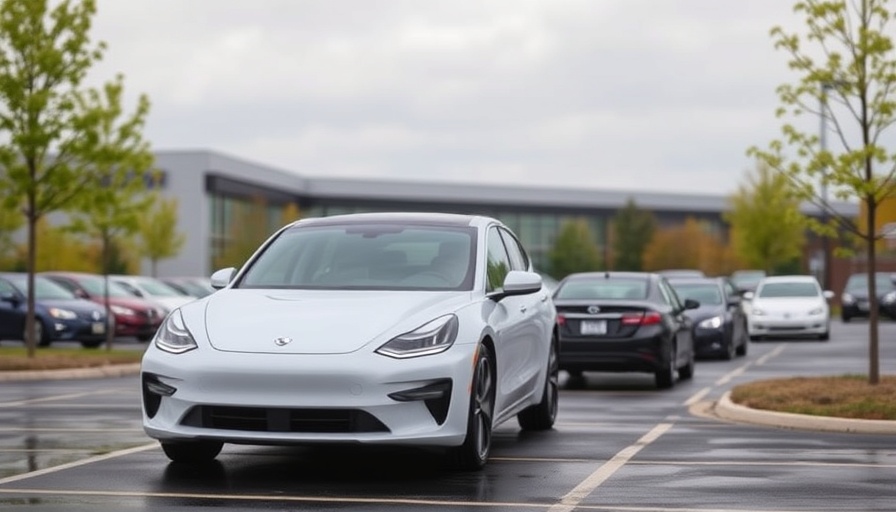
The Rise and Fall of the Lordstown Factory
Once hailed as a beacon of hope for electric vehicle (EV) manufacturing in Ohio, the Lordstown factory's narrative has taken a sharp turn. Originally a General Motors assembly plant, its transition to Foxconn's ownership was surrounded by excitement about producing EVs like the Lordstown Endurance pickup truck. However, after a series of financial struggles from Lordstown Motors and an uncertain future under Foxconn, the plant has now been sold to an enigmatic firm known as Crescent Dunes LLC, raising concerns about the future of automotive innovation in the region.
Understanding Electric Vehicle Ambitions in Ohio
The sale of the Lordstown facility is not just a local issue; it's a reflection of the broader struggles facing the EV industry in the United States. As government incentives continue to buoy the electric vehicle market, factories like Lordstown were expected to lead the charge in producing vehicles that could ease the dependency on fossil fuels. Yet, the transition from traditional to electric manufacturing has stumbled against the backdrop of financial woes and corporate shifts.
The Unfolding Mystery of Crescent Dunes LLC
Crescent Dunes LLC, the new owner of the Lordstown factory, is shrouded in mystery. Created only days before the sale, its status as an ‘existing business partner’ of Foxconn raises eyebrows. What does this mean for the future of the facility? With a reported purchase that includes not just land but also substantial equipment affiliated with EV manufacturing, many wonder whether this setup is a strategic re-alignment or merely a placeholder. As Foxconn indicates it will remain involved in operations, the true implications on production might unfold over time.
Can the Electric Dream Be Revived?
The dream of Ohio-made electric vehicles has not yet died, but it may need a serious overhaul. Following Lordstown Motors’ tumultuous exit, the narrative shifts to Foxconn's plan for the factory. While the company has stated intentions to maintain a manufacturing presence, diverging plans towards AI server production highlight a shift from original EV goals. If indeed Foxconn pivots towards technological servers, the factory's legacy risks transformation away from its electric vehicle roots.
Local Impact: What Does This Mean for the Community?
For the residents of Lordstown and the surrounding areas, the factory’s changing hands could represent both promise and uncertainty. With an economy historically reliant on manufacturing jobs, the community had looked to the factory's revival as a source of new employment opportunities in the EV market. However, as the narrative continues to evolve with Crescent Dunes and Foxconn, local hopes may falter if high-tech roles don't materialize.
Lessons Learned: Surviving in an Ever-Changing Market
The saga of the Lordstown factory serves as a cautionary tale in the modern automotive landscape, enhancing the importance of adaptability. Stakeholders in the EV market must learn to anticipate shifts in technology, manufacturing partnerships, and consumer preferences. History shows that viability requires more than great ambition; consistent innovation and financial stability must accompany the ability to pivot effectively in response to challenges.
As the automotive landscape continuously evolves, consumers, local workers, and industry professionals alike must watch closely. The future of the Lordstown factory could redefine not just the trajectory of a once-promising electric vehicle plant, but also the nation's approach to sustainable manufacturing as a whole.
Take Action: Stay Informed and Ahead of the Curve
As changes unfold in the automotive sector, staying updated is essential. Whether you are an enthusiast, a consumer, or someone affected by the industry dynamics, knowledge is power. Follow the developments around Lordstown and its new owners, as your insights can help pave the way for discussions about sustainable practices and manufacturing futures.
 Add Row
Add Row  Add
Add 




Write A Comment